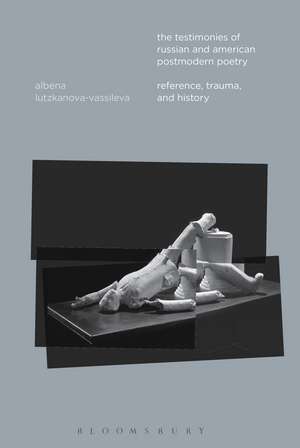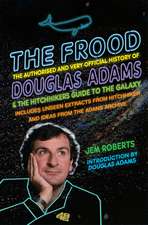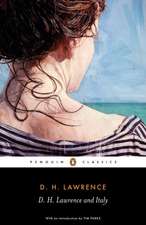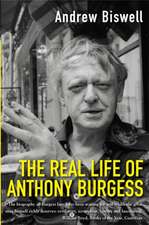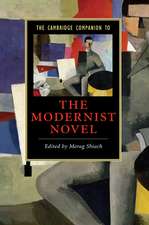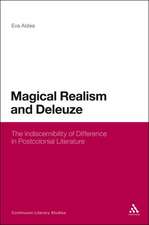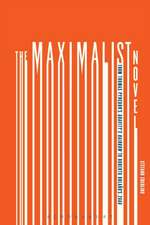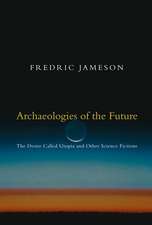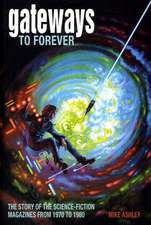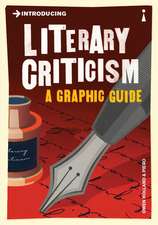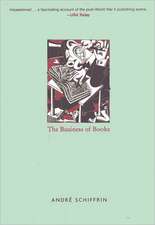The Testimonies of Russian and American Postmodern Poetry: Reference, Trauma, and History
Autor Dr. Albena Lutzkanova-Vassilevaen Limba Engleză Hardback – 11 feb 2015
| Toate formatele și edițiile | Preț | Express |
|---|---|---|
| Paperback (1) | 258.51 lei 6-8 săpt. | |
| Bloomsbury Publishing – 29 iun 2016 | 258.51 lei 6-8 săpt. | |
| Hardback (1) | 834.28 lei 6-8 săpt. | |
| Bloomsbury Publishing – 11 feb 2015 | 834.28 lei 6-8 săpt. |
Preț: 834.28 lei
Preț vechi: 1067.04 lei
-22% Nou
Puncte Express: 1251
Preț estimativ în valută:
159.63€ • 166.69$ • 131.82£
159.63€ • 166.69$ • 131.82£
Carte tipărită la comandă
Livrare economică 16-30 aprilie
Preluare comenzi: 021 569.72.76
Specificații
ISBN-13: 9781628921878
ISBN-10: 1628921870
Pagini: 304
Ilustrații: 50 bw illus
Dimensiuni: 152 x 229 x 25 mm
Greutate: 0.64 kg
Editura: Bloomsbury Publishing
Colecția Bloomsbury Academic
Locul publicării:New York, United States
ISBN-10: 1628921870
Pagini: 304
Ilustrații: 50 bw illus
Dimensiuni: 152 x 229 x 25 mm
Greutate: 0.64 kg
Editura: Bloomsbury Publishing
Colecția Bloomsbury Academic
Locul publicării:New York, United States
Caracteristici
Brings to the fore hitherto under-appreciated connections between poetic trends in contemporary Russian and American literature
Notă biografică
Albena Lutzkanova-Vassileva is an Assistant Professor of English and Comparative Literature at Brooklyn College of the City University of New York, USA.
Cuprins
INTRODUCTION: Witnessing History: The Voice of Postmodern PoetryPART 1Post-Communist Traumas, Post-Modernist Testimonies: Reference, History, and Memory in Russian Conceptualism and MetarealismI. The Problem of Reference in Russian Conceptualism1. The Origins and Meanings of Russian Conceptualism 2. The Striptease of Totalitarian Concepts: De-referencing the Communist Idiom3. Life on the Threshold: Ideological Manipulations of the 1980s4. Witnessing a Catastrophe: The Sudden Breakdown of Communism5. The Unforeseen Arrival of the Future. Displacements in a Post-Futurity Modus Vivendi 6. Traumatizing the Mind. Psychological Death of the Subject 7. Conceptualism, Corpora, and History. The Body-Aggregate and the Disarticulated Body 8. Referring to the Loss of Reference II. Parallel Developments in Other Post-Communist Literatures: A Bulgarian Interlude 1. Denuding and Revoking the Clichés of Communism 2. Surviving an Apocalypse: Testimonies to the Outbreak of Post-Communist Trauma3. Attaining the Impending. The Temporal and Psychological Displacements of the Post-Totalitarian Subject 4. Witnessing and Testimony. The Lethal Imagery of Post-Totalitarian Poetry 5. Corpora and History: The Mutilated and Dismembered Body III. Toward a Meta Understanding of Reality: The Problem of Reference in Russian Metarealist Poetry1. Russian Metarealism: The Expansion of Realism and Referentiality2. Victor Krivulin's Kontsert po zaiavkam (A Pre-Commissioned Concert) and Novoe zrenie (New Vision) 3. A Poetry of the Threshold: Ol'ga Sedakova's Vrata, Okna, Arki (Gateways, Windows, Arches)4. Deterritorializing into New Realities: Elena Shvarts's Lotsiya nochi (Sailing Directions of the Night) 5. ConclusionPART 2Trauma, Reference, and Media Technology in Postmodern American Poetry: The Testimonies of Language WritingI. The Problem of Reference in Language Poetry1. The Meanings of Language Poetry 2. The Rapprochement between Language Writing and Russian Postmodern Poetry 3. The Self-Referentiality of Language Poetry 4. Debunking the Referent as Linguistic Equivalent of Commodity Fetishism. The Project of De-referencing Language II. Rebelling against Poetic Standards: The Defiant Verbal Aesthetics of Language Poetry 1. The Commodification of Poetry 2. Undermining the Instrumental Discourse of Reification: Alternate Linguistic Discourses in Language Poetry3. Implosive Referentiality. The New Sentence4. Linguistic Experimentation. "Ludism" as the Unlimited Play of Signification 5. The Revolutionary Charge of Morphemic and Phonetic Disruption6. Becoming Meaningful: Re-Narrativizing Language Poetry7. The Semantics of Sound8. The Referential Potential of SilenceIII. The Emplacement of Language Poetry and Art in Information-Saturated Environments 1. Introduction2. The Wedding of Language Poetry and Media Technology 3. Resisting the Instrumental Discourse of Information Technology: The Production of Linguistic Noise in Charles Bernstein's "Azoot D'Puund"4. The Unavoidability of Reference. Replicating the Language of Technology. Code as the "Unconscious of Language" 5. Reference, Meaning, and Information6. Complicating the Vectors of Reference: The Multivalent Referentiality of Language Poetry IV. Language Poetry as a Discourse of Trauma 1. Cognitive Overstimulation and Information Overload: The Traumatic Impacts of Media Technology on The Mind 2. The Spasms of Language Poetry: Parataxis as Recording Cognitive Disruption and the Impacts of Trauma 3. Poetic Testimonies to the Genesis of Technological Trauma4. David Melnick's "Apocalypse of Fragmentation." Pcoet: A "Conscious Creation" or a "Protosemantic Delirium"? 5. Coping with the Wrong Tomorrow: Testimonies to the Trauma of Temporal Dislocation in the Age of Media Saturation 6. "Play It Again, Pac-Man": The Referential Power of Reenactment and "Traumatic Repetition" V. The Corporeal Response to the Experience of Trauma1. "Traumas of Code" : The Affinities of Codework and Language Poetry2. Salvaging the Body from the Structures of Information: Mez's the data][h!][bleeding texts3. "fleshwords by Ms Post Modemism": the Therapeutic Function of Code4. The Experiential Impact of Technological Trauma. Retooling Freud's Notion of the Dead Cortical Layer5. Reconceptualizing the Notions of Gognition and ExperienceVI. Conclusion: Trauma and History
Recenzii
A combative and spirited defence of postmodernism against accusations of self-referentiality and insularity ... [A] fine book.
Albena Lutzkanova-Vassileva's groundbreaking study is the first to compare Russian and US avant-garde poetries of the late 20th centuries-Russian Conceptualism and Metarealism on the one hand, American experimental poetry (especially the Language movement) on the other- as emblematic of their respective post-World War II cultures. Often considered merely self-referential, both these poetries, Vassileva argues, document the traumatic historical impact of the postmodern ethos in new and challenging ways. Anglophone readers will be especially fascinated by Vassileva's exciting presentation of the New Russian Poetry from Dimitri Prigov to Elena Shvarts-a poetry as brilliant as it is germane to an understanding of our own. A fascinating and genuinely original book!
An impressive critical study of postmodernist poetics broadly contextualizing its artistic predicaments in a world made readily perceivable through free media and controlled propaganda clichés that breed "happiness machines" and equally deny access to true traumatic experiences.
Albena Lutzkanova-Vassileva's book is the first ever comparative investigation of the major trends in Russian and American poetry of the late 20th century: Metarealism, Conceptualism, and Language School. It is a treasure-trove for everybody who loves contemporary poetry and strives to understand its complex language, experimental courage and international scope. Contrary to the common view, the author demonstrates that postmodern poetic systems are not aesthetically self-enclosed but have a deep referential value and relate to reality both positively (as the multitude of realities in Metarealism) and negatively (as the traumatic experience in Conceptualism). The book explores refined poetic imagery in a most precise way and introduces a number of new concepts emerging at the cutting edges of contemporary critical theory.
Albena Lutzkanova-Vassileva's groundbreaking study is the first to compare Russian and US avant-garde poetries of the late 20th centuries-Russian Conceptualism and Metarealism on the one hand, American experimental poetry (especially the Language movement) on the other- as emblematic of their respective post-World War II cultures. Often considered merely self-referential, both these poetries, Vassileva argues, document the traumatic historical impact of the postmodern ethos in new and challenging ways. Anglophone readers will be especially fascinated by Vassileva's exciting presentation of the New Russian Poetry from Dimitri Prigov to Elena Shvarts-a poetry as brilliant as it is germane to an understanding of our own. A fascinating and genuinely original book!
An impressive critical study of postmodernist poetics broadly contextualizing its artistic predicaments in a world made readily perceivable through free media and controlled propaganda clichés that breed "happiness machines" and equally deny access to true traumatic experiences.
Albena Lutzkanova-Vassileva's book is the first ever comparative investigation of the major trends in Russian and American poetry of the late 20th century: Metarealism, Conceptualism, and Language School. It is a treasure-trove for everybody who loves contemporary poetry and strives to understand its complex language, experimental courage and international scope. Contrary to the common view, the author demonstrates that postmodern poetic systems are not aesthetically self-enclosed but have a deep referential value and relate to reality both positively (as the multitude of realities in Metarealism) and negatively (as the traumatic experience in Conceptualism). The book explores refined poetic imagery in a most precise way and introduces a number of new concepts emerging at the cutting edges of contemporary critical theory.
